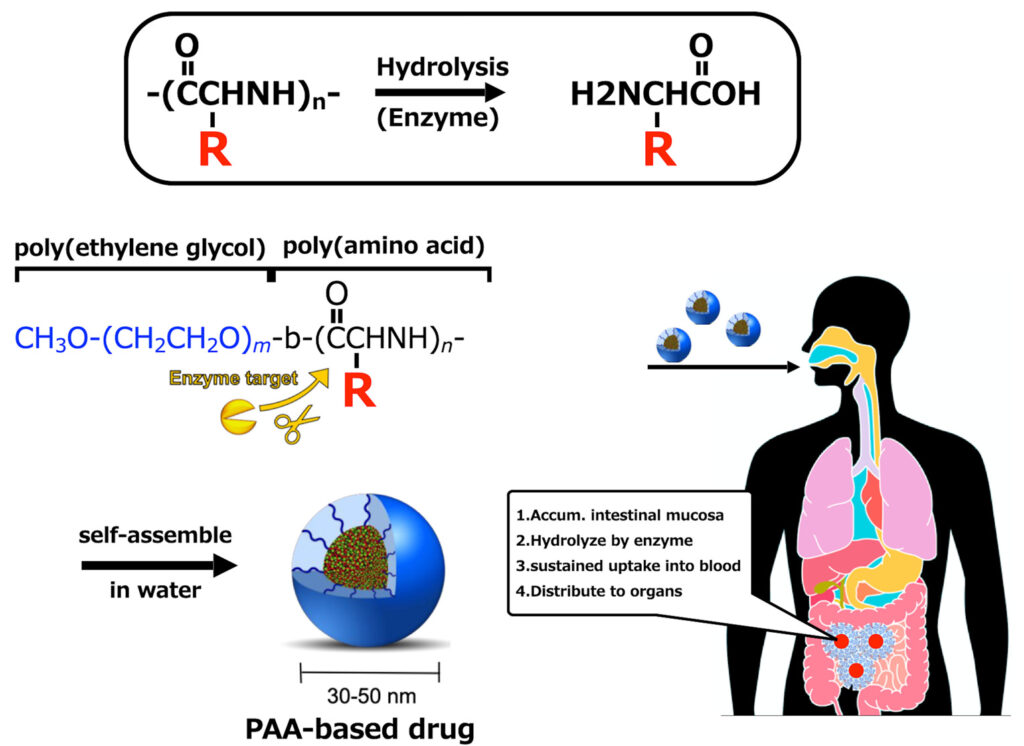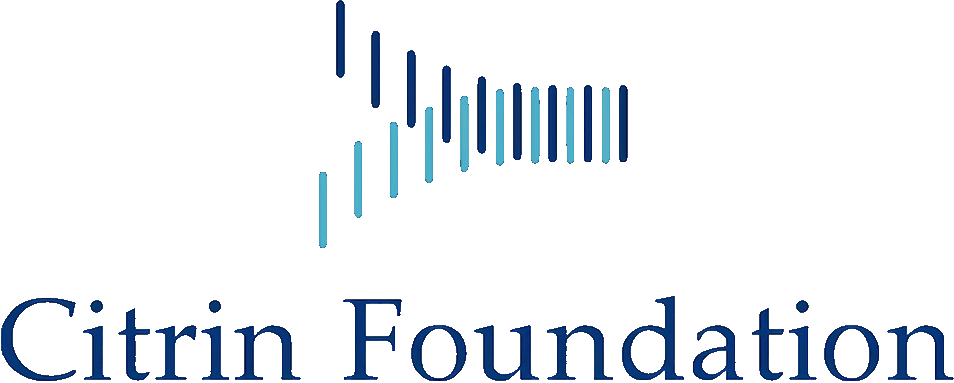Yukio NAGASAKI, PhD
Department of Materials Sciences and Master’s School of Medical Sciences, University of Tsukuba, Japan
Development of NanoAA for Citrin Deficiency
Amino acids are not only proteins that are responsible for the constituents of living organisms such as muscles and enzymes, but also important factors that are responsible for various physiological reactions in living organisms. For example, arginine is involved in angiogenesis and induction of apoptosis by producing NO as a substrate for nitric oxide synthase (NOS), and ornithine is involved in ammonia metabolism by the urea cycle in the liver. Despite these various physiological effects, amino acids are highly water-soluble and have low molecular weight, so even if they are orally administered, they are hardly taken up in the blood and are excreted extremely rapidly, making effective use difficult.
In order to solve these problems, we have started a novel amino acids delivery system by molecular assembling of poly(amino acid) nanoparticles (NanoAA). After the administration of NanoAA, it is metabolized slowly to generate the corresponding amino acid and supply sustainedly to the body. This system improved amino acid therapy. We have confirmed so far Nanoarginine, Nanoorthinine and NanoL-DOPA for cancer, acute liver failure, and Parkinson’s disease therapies, respectively. Here, we would like to propose a new target, citrin deficiency therapy by our new NanoAA.

(Updated June 2022)


 P
P